Filter by
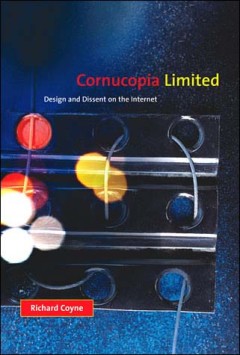
Cornucopia Limited: Design and Dissent on the Internet
Title from title screen."The network economy presents itself in the transactions of electronic commerce, finance, business, and communications. The network economy is also a social condition of discontinuity, indefinite limits, and in-between spaces. In Cornucopia Limited, Richard Coyne uses the liminality of design - its uneasy position between creativity and commerce - to explore the network …
- Edition
- -
- ISBN/ISSN
- 9780262255950
- Collation
- 1 online resource (x, 284 pages)
- Series Title
- -
- Call Number
- -
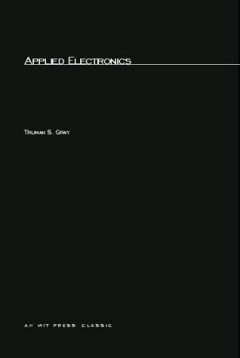
Applied electronics :a first course in electronics, electron tubes and associ…
A basic text covering the physical phenomena involved in electronic conduction; ways in which these phenomena combine to govern the characteristics, ratings, and limitations of electronic devices; and applications of electronics to the various branches of electrical engineering.OCLC-licensed vendor bibliographic record.
- Edition
- 2nd ed.
- ISBN/ISSN
- 9780262310772
- Collation
- 1 online resource (881 pages) :illustrations.
- Series Title
- -
- Call Number
- -
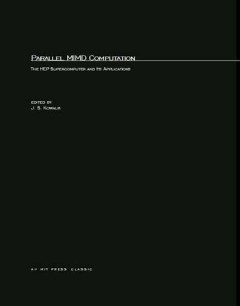
Parallel MIMD computation :the HEP supercomputer and its applications
Experts in high-speed computation agree that the rapidly growing demand for more powerful computers can only be met by a radical change in computer architecture, a change from a single serial processor to an aggregation of many processors working in parallel. At present, our knowledge about multi-processor architectures, concurrent programming or parallel algorithms is very limited. This book d…
- Edition
- -
- ISBN/ISSN
- 9780262256537
- Collation
- 1 online resource (411 pages) :illustrations.
- Series Title
- -
- Call Number
- -
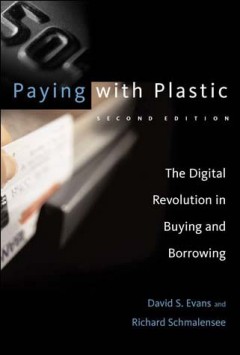
Paying with plastic :the digital revolution in buying and borrowing
The definitive account of the trillion-dollar payment card industry. The payment card business has evolved from its inception in the 1950s as a way to handle payment for expense-account lunches (the Diners Club card) into today's complex, sprawling industry that drives trillions of dollars in transaction volume each year. Paying with Plastic is the definitive source on an industry that has r…
- Edition
- 2nd ed.
- ISBN/ISSN
- 9780262272438
- Collation
- 1 online resource (xiii, 367 pages) :illustrations
- Series Title
- -
- Call Number
- -
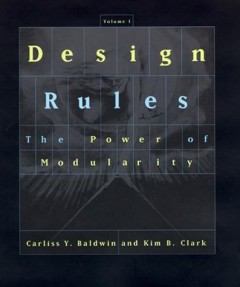
Design Rules: The Power of Modularity
We live in a dynamic economic and commerical world, surrounded by objects of remarkable complexity and power. In many industries, changes in products and technologies have brought with them new kinds of firms and forms of organization. We are discovering news ways of structuring work, of bringing buyers and sellers together, and of creating and using market information. Although our fast-moving…
- Edition
- -
- ISBN/ISSN
- 9780262267649
- Collation
- 1 online resource (volumes ) :illustrations
- Series Title
- -
- Call Number
- -
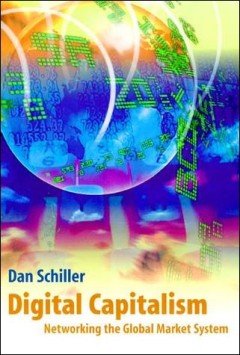
Digital capitalism: networking the global market system
Schiller traces the transformation of the Internet from government, military, and educational tool to agent of "digital capitalism" through three critically important and interlinked realms.The networks that comprise cyberspace were originally created at the behest of government agencies, military contractors, and allied educational institutions. Over the past generation or so, however, a growi…
- Edition
- -
- ISBN/ISSN
- 9780262283137
- Collation
- 1 online resource (xvii, 294 pages)
- Series Title
- -
- Call Number
- -

https://doi.org/10.7551/mitpress/11022.001.0001?locatt=mode:legacy;http://www…
A guide to understanding the inner workings and outer limits of technology and why we should never assume that computers always get it right."In Artificial Unintelligence, Meredith Broussard argues that our collective enthusiasm for applying computer technology to every aspect of life has resulted in a tremendous amount of poorly designed systems. We are so eager to do everything digitally--hir…
- Edition
- -
- ISBN/ISSN
- 9780262346733
- Collation
- 1 online resource (237 pages) :illustrations.
- Series Title
- -
- Call Number
- -
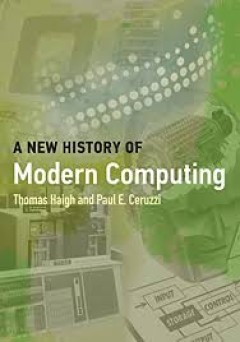
A New History of Modern Computing
"Bringing the history of modern computing fully up to date, from new applications to scientific computation to video games and the ubiquitous smartphone"--OCLC-licensed vendor bibliographic record.
- Edition
- -
- ISBN/ISSN
- 0262366487
- Collation
- 1 online resource.
- Series Title
- -
- Call Number
- -
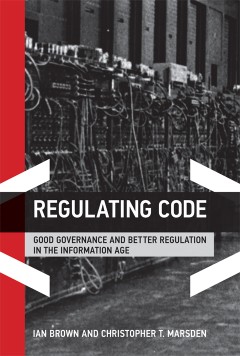
Regulating Code: Good Governance and Better Regulation in the Information Age
The case for a smarter “prosumer law” approach to Internet regulation that would better protect online innovation, public safety, and fundamental democratic rights. Internet use has become ubiquitous in the past two decades, but governments, legislators, and their regulatory agencies have struggled to keep up with the rapidly changing Internet technologies and uses. In this groundbreakin…
- Edition
- -
- ISBN/ISSN
- 9780262312943
- Collation
- -
- Series Title
- -
- Call Number
- -

Garments of Paradise: Wearable Discourse in the Digital Age
"Wearable technology--whether a Walkman in the 1970s, an LED-illuminated gown in the 2000s, or Google Glass today--makes the wearer visible in a technologically literate environment. Twenty years ago, wearable technology reflected cultural preoccupations with cyborgs and augmented reality; today, it reflects our newer needs for mobility and connectedness. In this book, Susan Elizabeth Ryan exam…
- Edition
- -
- ISBN/ISSN
- 9780262323963
- Collation
- 1 online resource
- Series Title
- -
- Call Number
- -
 Computer Science, Information & General Works
Computer Science, Information & General Works  Philosophy & Psychology
Philosophy & Psychology  Religion
Religion  Social Sciences
Social Sciences  Language
Language  Pure Science
Pure Science  Applied Sciences
Applied Sciences  Art & Recreation
Art & Recreation  Literature
Literature  History & Geography
History & Geography